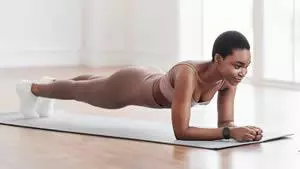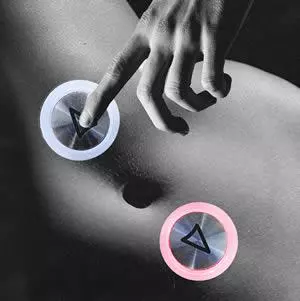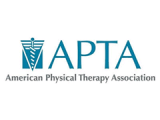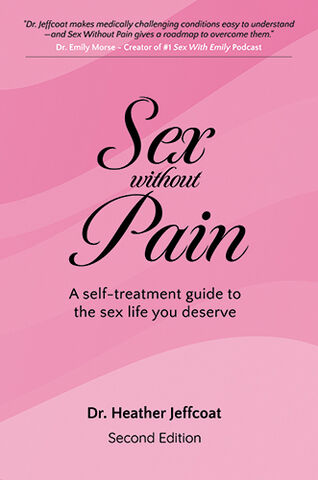
Femina Physical Therapy in the Media
Heather Jeffcoat, DPT and the team at Femina PT are routinely sought out by major online sources, print publications, and broadcast media for our knowledge of all things related to pelvic health. The recognition we have received as leading experts in our field has resulted in appearances on "Loveline with Mike and Dr. Drew" , US News & World Report, Huffington Post, ABC News, Cosmopolitan, Women’s Health, Bustle, "Sex With Emily" with Dr. Emily Morse, and in New York Magazine and Health Magazine, to name but a few. The demand for our expertise is greater than ever as more and more women seek to remedy the issues that we work with on a daily basis.
As Featured In:
- Details
- Written by: Heather Jeffcoat, DPT
- 2282 Views

Heather Jeffcoat, DPT
Everyone Wants to Know: What is a Gymgasm?
There can be clitoral, vaginal, breast, inner thigh, toe sucking, oral, sensual massage, mental orgasms and so many more.
Amanda begins:
When it comes to orgasms we tend to only hear about the clitoral orgasm and the G-spot orgasm (despite the latter being quite elusive), but there's actually a whole world of orgasms out there that can be experienced. Depending on the source of information, there's anywhere from 11 to 24 orgasms that those with vulvas — and some penis owners too — can achieve.
Here's a paragraph from a great article we wrote on the relationship between the clitoral hood and pelvic floor muscle strength:
Read more: Glam Revisits the Question: Just What is a Gymgasm Anyhow?
- Details
- Written by: Heather Jeffcoat, DPT
- 2921 Views

Heather Jeffcoat, DPT
Here's What You Need to Know if Your Partner Has Dyspareunia
Author: Alex Denny
Reviewer: Vita Eizans, D.O.
Support goes a long way when your significant other suffers from painful intercourse.
Many people experience painful intercourse at some point in their lives. Whether you needed more lubricant or you just weren't in the mood—the reason doesn't matter—it's not unusual to occasionally feel pain during sex.
Read more: Giddy: You Need to Know These 4 Facts if Your Partner Has...
- Details
- Written by: Heather Jeffcoat, DPT
- 1786 Views

Heather Jeffcoat, DPT
Wondering How to Talk With Your Partner About Endo?
The pain of endometriosis can make intimate relationships a huge challenge. Experts and patients give advice on how to talk about this invisible condition so that your partner understands.
By Gabrielle Kassel
Medical Reviewer: Andrea Eisenberg, M.D.
In this article Gabrielle Kassel speaks to a number of experts on endo, including yours truly. If you're suffering from pain during sex and looking for tips on how to talk with your partner about endo, read on. Topics covered include:
Read more: Health Central: How to Talk With Your Partner About Endo
- Details
- Written by: Heather Jeffcoat, DPT
- 6799 Views

The bottom line: If a little belly press during sex helps turn you on more, that’s what matters most.
Heather Jeffcoat, DPT
The article begins:
If you’re thinking there’s no way that could possibly feel good, hear us out: Gently applying pressure to the lower abdomen during sex can feel amazing and potentially amplify your orgasms. You’ve just gotta figure out how to make it work for you.
Read more: Cosmo Asks Heather Jeffcoat About This "Belly Press During...
- Details
- Written by: Heather Jeffcoat, DPT
- 2141 Views

Heather Jeffcoat, DPT
How Postpartum Exercise Guidelines are Changing and Why
We're not saying "Don't exercise at all!"
In the article Sydni describes the evolution of standard practice for exercising postpartum - with recommendations increasing from six weeks to twelve weeks before any strenuous activity - but with added emphasis on easing into exercise at the six week mark, all the while building to a full regimen at the twelve week mark.
She begins:
Many women can’t wait to start exercising again after pregnancy. For others, sweet baby snuggles tend to win out over exercising for the first few weeks. Once you catch up on sleep and start to gain more energy, you may be ready to do Pilates or go for a jog again—but it might not be safe to jump back in with the same intensity level in your postpartum exercise as in your pre-pregnancy routines.
...It turns out, new research backs waiting until 12 weeks postpartum to do high-intensity workouts, and many OBGYNs have adjusted their postpartum exercise recommendations acccordingly.
Read more: Motherly | Postpartum Exercise Guidelines are Changing
- Details
- Written by: Heather Jeffcoat, DPT
- 2495 Views

Heather Jeffcoat, DPT
Yes, Gymgasms Really Are a Thing
Now Learn to Make Them Happen for Yourself!
Megan begins the article with:
While it might have just popped up on TikTok, the gymgasm isn’t exactly new. Pelvic floor therapist Dr. Heather Jeffcoat, founder of Femina Physical Therapy, says it’s a lot more common than you might think. In fact, according to a study published by famed sexologist Alfred Kinsey, the phenomenon dates back to the early 1950s. The research varies, but the Journal of Sexual and Relationship Therapy reported that one in 10 women report having an exercise-induced orgasm in their life, while an even smaller population experiences them on the reg. (Hello! Teach me!)
A little background on how this is all possible
First of all, let's familiarize ourselves with the pudendal nerve. It's the superhighway of arousal, and because of its close proximity to the large muscle groups of the pelvis, it is easily stimulated by certain movements. The key to maximizing your pleasure is to find out which movements do this for you, and though everyone is wired a little differently, there are some commonalities that make achieving gymgasms easier for many people.
- Details
- Written by: Heather Jeffcoat, DPT
- 3055 Views

Heather Jeffcoat, DPT
Find Out How Dyspareunia Causes Pain During Sex
Intercourse shouldn't hurt, but if it does, find out why and how you can reduce the discomfort.
As the article states, if you experience pain during sex, you're far from alone. Dyspareunia, or painful intercourse, affects about 3 in 4 women. Although this condition is most often associated with women, studies have shown about 1 percent to 5 percent of men suffer from pain from intercourse, too.
- Details
- Written by: Webmaster
- 109 Views




























































































